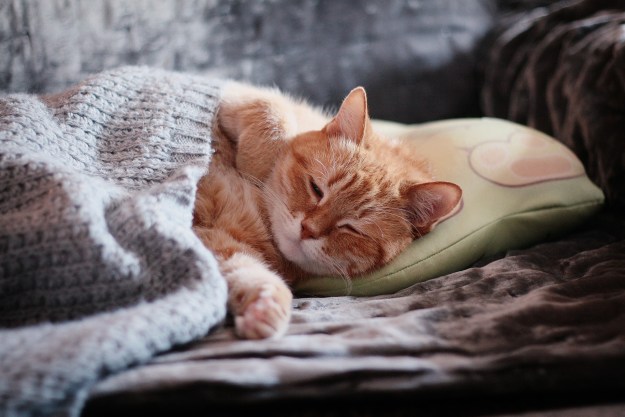Cats meow (and don’t meow!) for a number of reasons. It all starts when they’re kittens — they meow to their mothers when they’re cold, hungry, or scared. As they get older, little felines learn different ways to vocalize and interact with other cats, usually by yowling or hissing. But meowing is an adult cat’s way to communicate with people. It’s nice to have a little chat with your tiny tiger, though constant meowing can be really unpleasant.
If you regularly ask yourself, “Why is my cat crying?” and “Why do cats meow so much?” you’re in the right place.
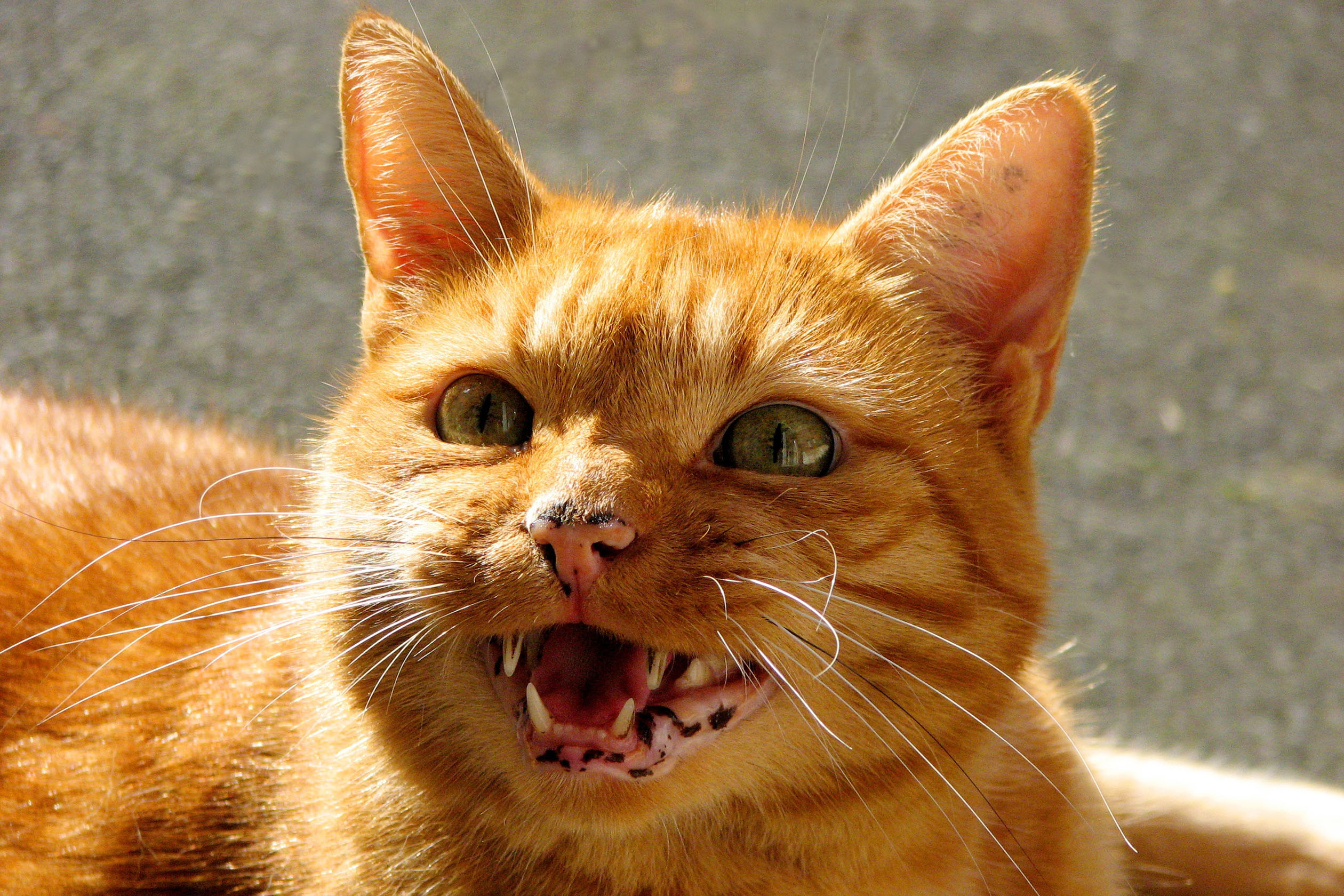
Why do cats meow?
To get your cat to quiet down, you need to figure out why they’re meowing in the first place. Crying for attention will require a different response than crying in pain. Here are some of the most common reasons why cats meow continually and solutions that can help you both.
They’re lonely and want to chat with you
The problem: If your cat spends long hours at home alone, she may be lonely. While kitties are not the most social animals, they do enjoy company from time to time. Your cat may greet you when you come home or meow when she walks into the room. Some cats like to mimic humans and join in regular conversations, too.
The solution: Consider leaving out some toys to entertain her while you’re gone. You can get a kitty condo or interactive toys. You can also put a bird feeder outside her favorite window to attract birds and provide hours of entertainment, or play a video created just for cats on YouTube.
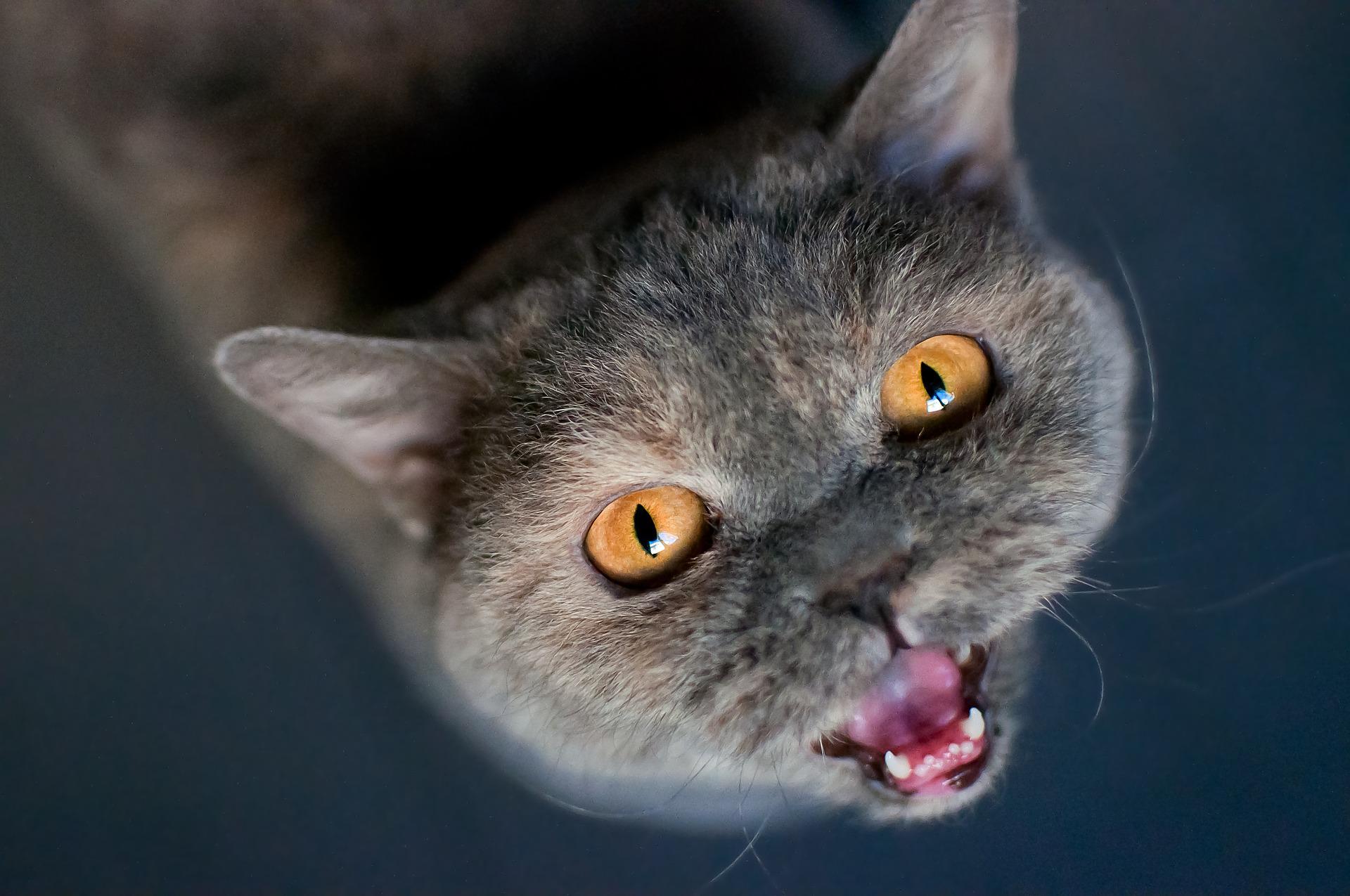
They want food
The problem: Is your cat crying nonstop anytime someone enters the kitchen in particular? She’s probably begging for food, even if it’s not her usual mealtime. Some cats become very vocal when they believe it’s time to be fed.
The solution: To train your cat not to do this, don’t feed her when she meows. Instead, wait until she’s quiet to put down her bowl. Over time, she’ll learn that being quiet means being fed. You can also try using an automatic feeder, which releases a portion of food at a set time every day.
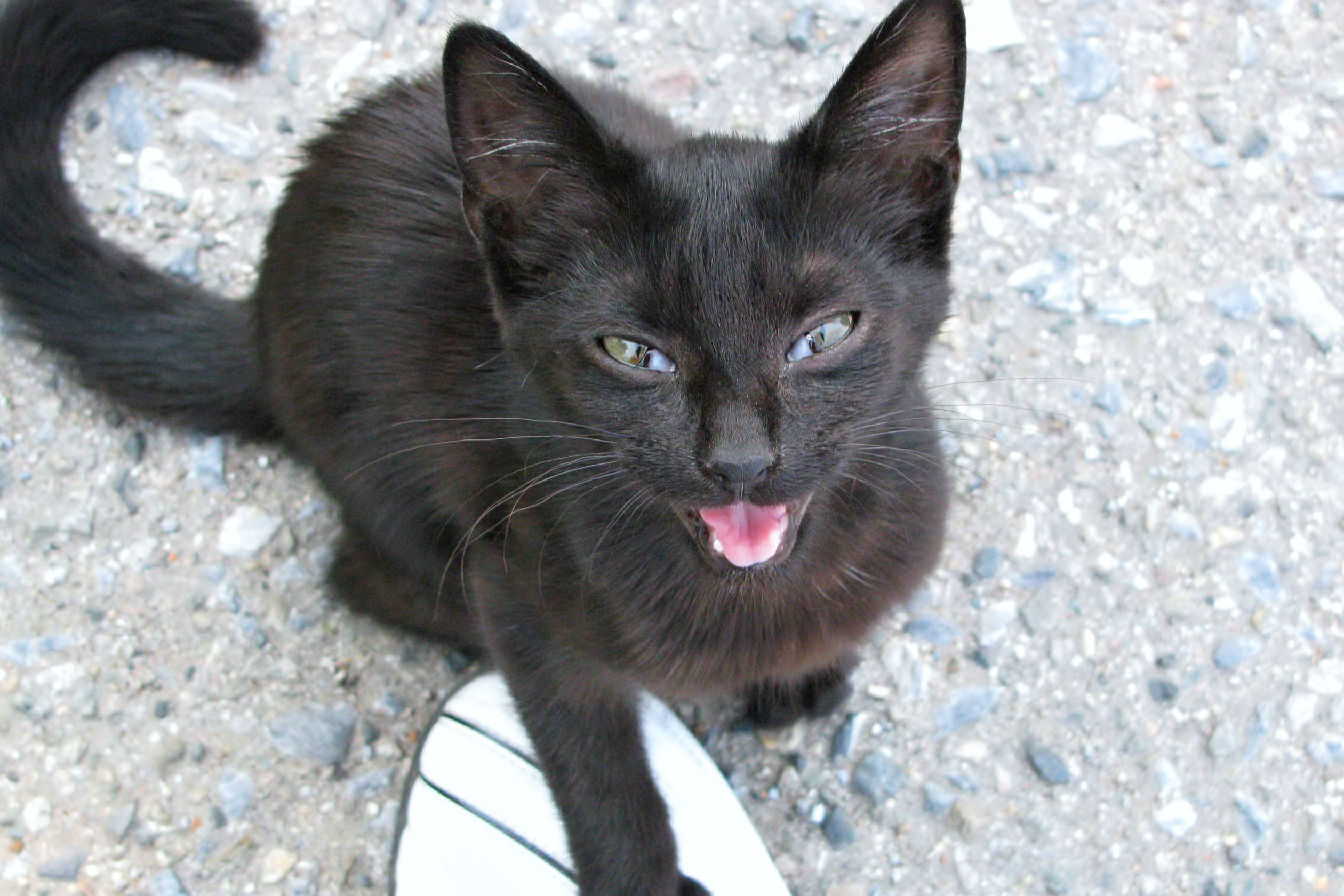
They want attention
The problem: Some kitties meow when they want attention. Cats enjoy being around people and may start talking when they want you to play or pet them.
The solution: To prevent her constant meowing, try giving her attention only when she’s quiet. If she begins meowing again, look away or stop what you’re doing, but be careful not to ignore her. Your cat wants to spend time with you! She needs quality time every day for playing, grooming, and chatting. Schedule some pet sessions with your furry friend, whether she’s meowing at you or not.
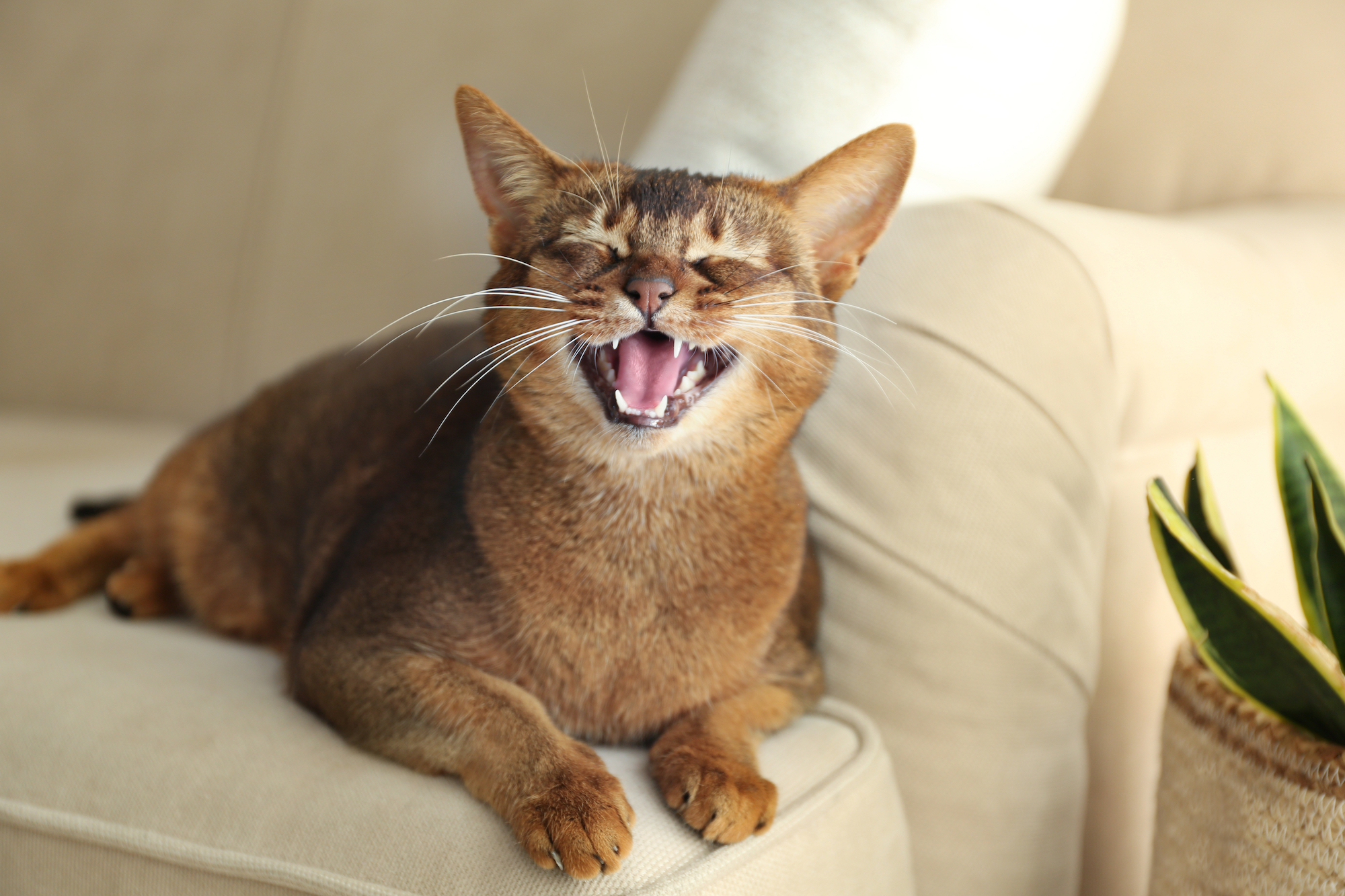
They have a medical problem, or they’re stressed
The problem: Numerous diseases and ailments can cause your cat to be hungry, thirsty, or in pain, resulting in excessive meowing. Kidney disease and an overactive thyroid are two such medical conditions. Stress can also cause a cat to be more vocal. If you’ve moved recently, added a new family member, or gone through any other significant life changes, your cat may be feeling stressed out, causing her to meow more.
The solution: This can be a serious problem. If you suspect your cat is in physical or emotional pain, schedule an appointment with your vet for a complete checkup. They can give you tips on calming your anxious kitty or create a comprehensive treatment plan to relieve your cat’s pain.
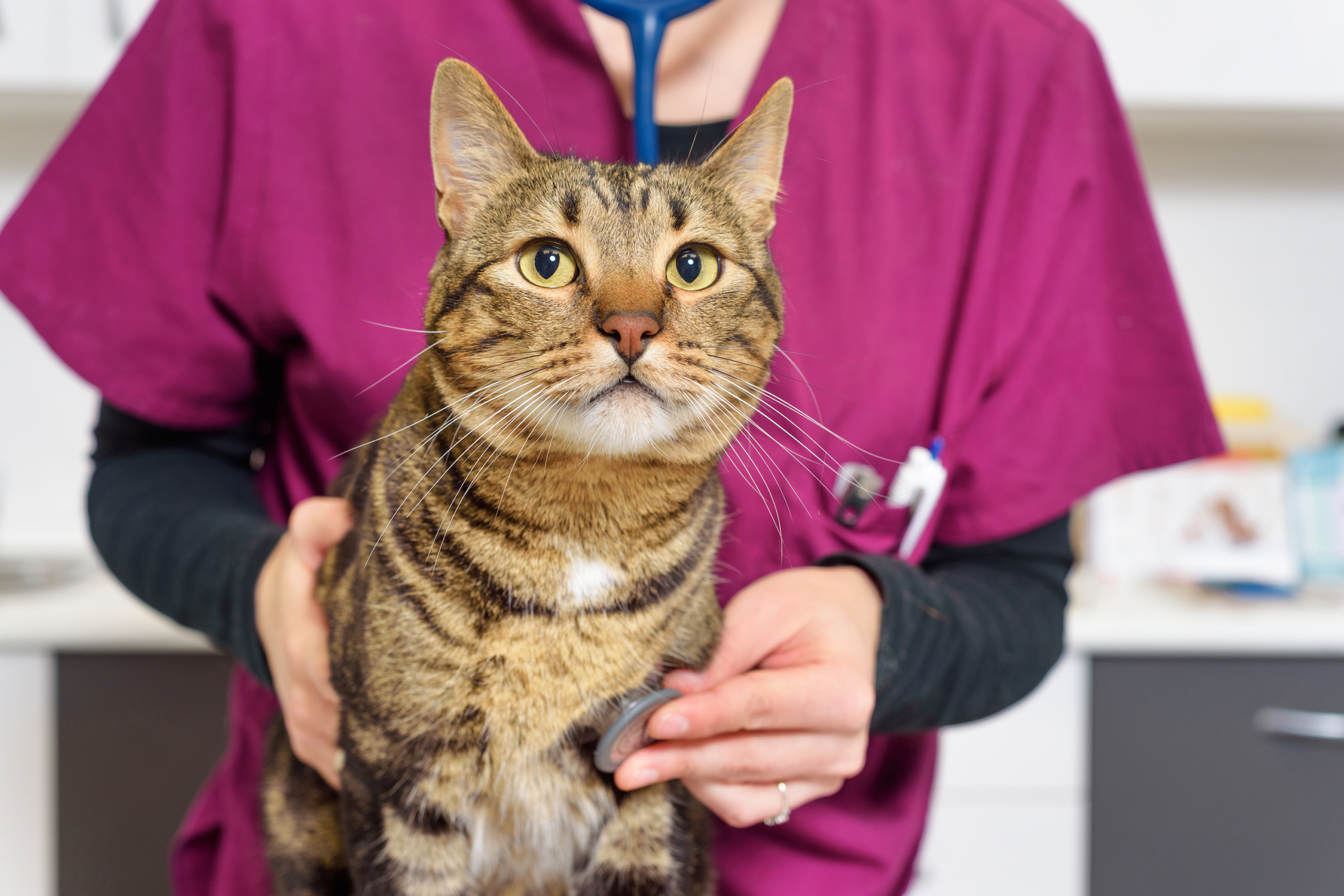
They’re getting old
The problem: As cats age, they can begin to experience cognitive dysfunction and mental confusion. Just like older people, they may become easily disoriented. This can cause a cat to cry more frequently, especially at night.
The solution: Sometimes a nightlight can help your cat feel more comfortable if she gets disoriented in the dark. However, this issue is best handled with a vet’s assistance. They can determine if aging is causing your kitty to meow. Additionally, they can prescribe medications to alleviate her symptoms.
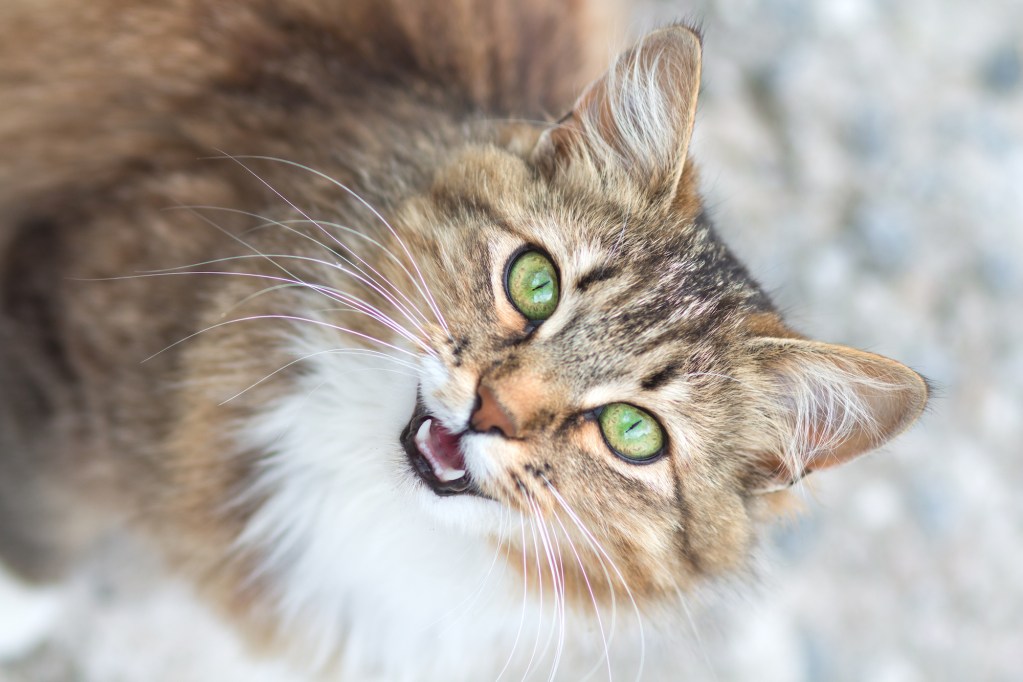
They want to breed
The problem: If your cat isn’t spayed or neutered, she will be very vocal when she wants to breed. Female cats are often louder than males. They will yowl when they’re in heat (every two to three weeks throughout breeding season), and males will yowl when they smell a female cat in heat. Both, however, can be very annoying.
The solution: Get your cat spayed or neutered to prevent this sort of meowing. Not only can this procedure help with excessive meowing, but spaying or neutering your cat can also prevent a whole host of other medical problems.
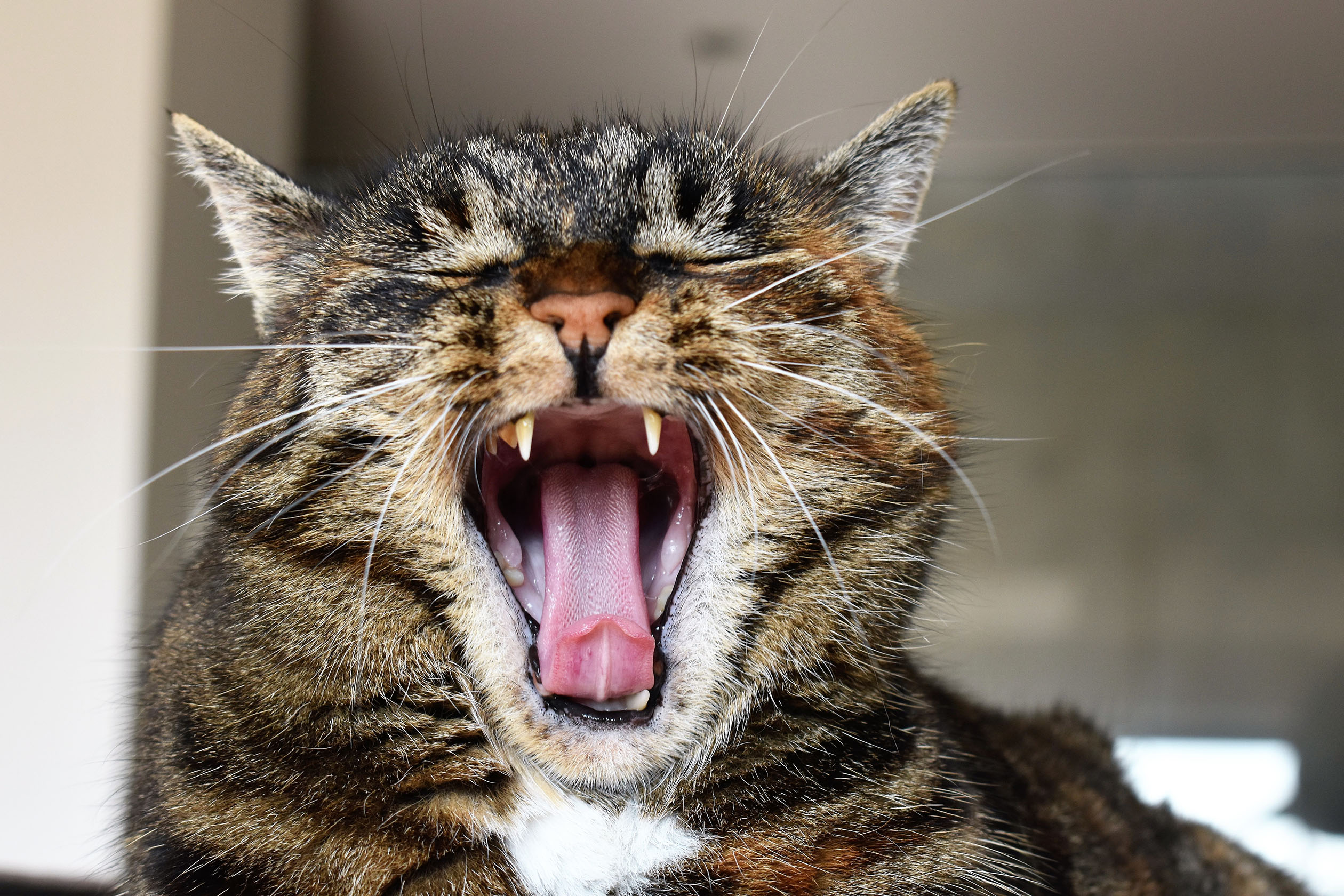
While cats’ meowing can aggravate, it could be a sign that they are unhappy. Whether they simply need more attention or require medical care, you shouldn’t ignore your cat’s cries. When your cat meows, check on her to figure out the reason for the noise. Once you know why your cat is meowing, you can help solve her problem. You may need to set aside time to play with her or schedule a vet appointment. But with this guide, stopping your cat from meowing excessively will be a little easier.
Editors' Recommendations
- Wondering why cats chirp? Fascinating reasons why your cat chirps at birds (and you)
- How to cat-proof your balcony before the unthinkable happens
- There’s a totally normal reason cats throw up after eating grass – here’s why
- When do kittens’ eyes change colors? The answer is so cool – here’s what to know
- Your cat trilling is actually a good thing – here’s why




